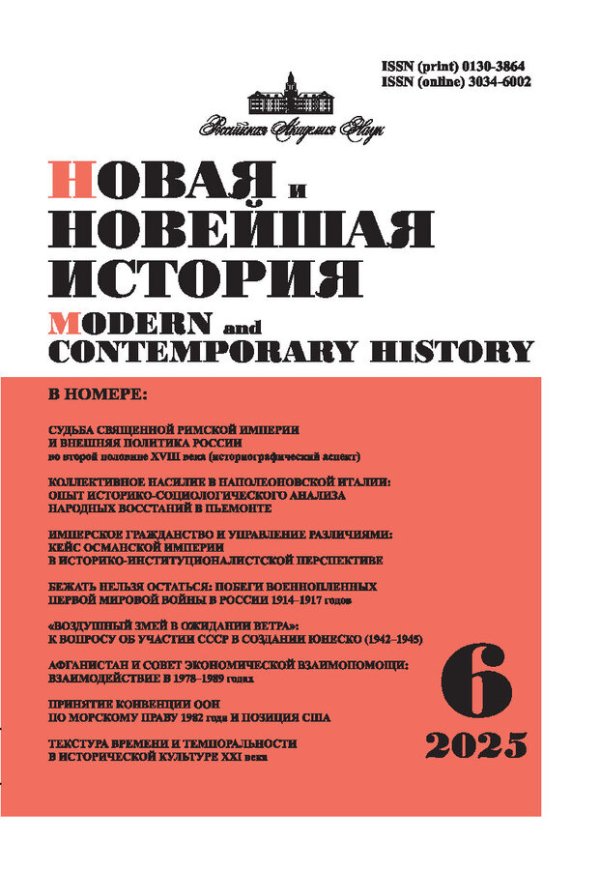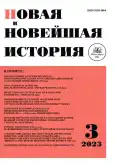Arthur Jacob Marder: A Glorifier of the British Sea Power
- Authors: Likharev D.V.1
-
Affiliations:
- Far Eastern Federal University
- Issue: No 3 (2023)
- Pages: 195-206
- Section: Messages
- URL: https://journal-vniispk.ru/0130-3864/article/view/142033
- DOI: https://doi.org/10.31857/S013038640025917-6
- ID: 142033
Cite item
Full Text
Abstract
In this article the author analyses the academic career of Arthur Jacob Marder, a prominent student of British naval policy in the late nineteenth and early twentieth centuries. Even though he graduated from Harvard, Marder faced serious difficulties in obtaining a position at American universities because of the ethnic and religious prejudices prevalent in the 1930s. Marder chose British naval policy of the late nineteenth and early twentieth centuries as his field of research. A key issue in this vast area of study were the reforms put in place by Admiral John Fisher to prepare the British Navy for the Great War. His first monograph, “The Anatomy of British Sea Power”, was published in 1940. After encountering restrictions on access to British Admiralty documents in the 1940s and 1950s, Marder turned to private archives to locate sources for his study. He managed to publish both Sir Herbert Richmond's diaries and the three-volume correspondence of Sir John Fisher. The five-volume treatise “From the Dreadnought to Scapa Flow” was the crowning achievement of Marder's research. Marder is considered the founder of the classic concept of the so-called naval revolution of Sir John Fisher. Marder had the unique opportunity to study British naval documents, most of which no longer exist today and are forever lost to future generations of historians. This is the primary reason why Marder's work retains its significance to this day.
About the authors
Dmitrii Vital'evich Likharev
Far Eastern Federal UniversityRussian Federation, Vladivostok
References
- Bell C.M. On Standards and Scholarship: A Response to Nicholas Lambert // War in History. 2013. Vol. 20. № 3. Р. 381–409.
- Fisher J.A. Fear God and Dread Nought. The Correspondence of Admiral of the Fleet Lord Fisher of Kilverstone / ed. A.J. Marder. Vol. 1–3. London, 1952–1959.
- Gough B. Historical Dreadnoughts: Arthur Marder, Stephen Roskill and Battles for Naval History. Barnsley, 2010.
- Keegan J. Why Are Britain’s Great Naval Historians Americans? // Naval History. 1987. Vol. 1. № 2. Р. 7–11.
- Lambert A.N. Sir John Fisher Naval Revolution. Columbia, 1999.
- Lambert A.N. Righting the Scholarship: The Battle Cruiser in History and Historiography // Historical Journal. 2015. Vol. 58. № 2. Р. 275–307.
- Langer W.L. The Diplomacy of Imperialism. 1890–1902. Vol. 1–2. New York, 1935.
- Langer W.L. In and Out of the Ivory Tower. New York, 1977.
- Mackay R. F. Fisher of Kilverstone. London, 1973.
- Marder A.J. The Anatomy of British Sea Power: A History of the British Naval Policy in the Pre-Dreadnought Era. 1880–1905. New York, 1940.
- Marder A.J., Richmond H. Portrait of an Admiral: The Life and Papers of Sir Herbert Richmond. Cambridge (Mass.), 1952.
- Marder A.J. From the “Dreadnought” to Scapa Flow. The Royal Navy in the Fisher Era. 1905–1919. Vol. 1–5. London, 1961–1970.
- Naval Warfare in the Twentieth Century. 1900–1945. Essays in Honor of Arthur Marder / ed. G. Jordan. New York, 1977.
- Richmond H. National Policy and Naval Strength. London, 1928.
- Richmond H. Imperial Defence and the Capture at Sea in War. London, 1932.
- Richmond H. Sea Power in the Modern World. London, 1934.
- Richmond H. Statesmen and Sea Power. Oxford, 1947.
- Seligman M.S. Naval History by Conspiracy Theory: The British Admiralty before the First World War and the Methodology of Revisionism // Journal of Strategic Studies. 2015. Vol. 38. № 7. Р. 966–984.
- Seligman M.S. A Great American Scholar? The Disputed Legacy of Arthur Marder Revisited // The International History Review. 2016. Vol. 38. № 5. Р. 1040–1054.
- Sumida J.T. In Defence of Naval Supremacy: Financial Limitation, Technical Innovation and British Naval Policy. 1889–1914. London, 1989.
- Sumida J.T. Demythologizing the Fisher Era: The Role of Change in Historical Method // Militärgeschichte Zeitschrift. 2000. Bd. 59. № 3. Р. 171–187.
- Taylor A.J.P. Letters to Eva. 1969–1983 / ed. E.H. Taylor. London, 1991.
Supplementary files










